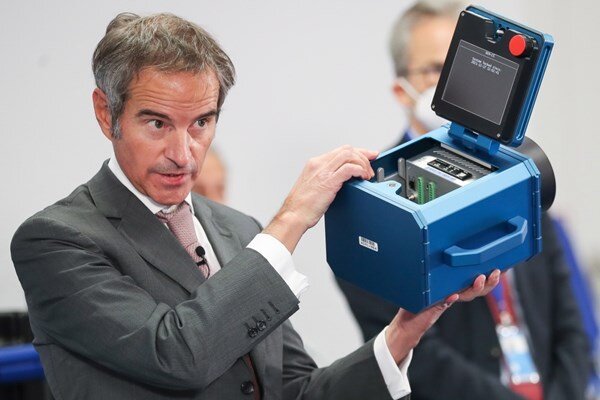"What we need is the cooperation from Iran and we also need the maximum levels of access and inspection. The more limitations we have, the less credibility or the fewer assurances we can provide the international community about the status of the nuclear material in Iran,” IAEA chief Grossi claimed in an interview with PBS when he was asked if he believes IAEI needs an adequate explanation of this nuclear material before the US, Europe, and Iran sign any kind of political agreement.
"The United States has not put any pressure on me. There could be implicit pressure or explicit pressure from one side or the other,” he said in response to a question about whether the US or Europe put pressure on the agency to close the investigation.
“Pressures in these nuclear matters will always exist. They are part of the landscape, unfortunately. But, if we keep our course, if the IAEA keeps doing and is allowed to do its inspection work, we are going to get there, I'm pretty confident," The Director General of IAEA further said.
Then, in response to a question about whether IAEA has lost the ability to know if Iran is building more centrifuges since Iran switched off the cameras, Grossi said, "Well, that was a serious move. I do not and I will not rewrite or re-say what I said. These 27 cameras that were disconnected were covering important areas of both centrifuge production facilities and other things and we lost that continuity of knowledge.”
“If and when the agreement is revived and we can reconnect the cameras, we have to sit down with our Iranian colleagues and see how we can fill in the gaps, if you want, between that time and the present time,” he added.
Earlier on Wednesday, the head of the Atomic Energy Organization of Iran (AEOI) Mohammad Eslami reacted to claims leveled by Grossi, and urged him not to raise the demands of the Israeli regime.
"From the beginning, Iran has carried out all its activities in the nuclear field based on the standards and regulations of the IAEA and there is no action that it has taken without the agency's supervision," Eslami emphasized.
Saying that Iran is committed to the NPT and safeguards, and the agency cannot claim that inspections in Iran have been met with non-compliance, Eslami added that the alleged cases and places are made up by the mind of the Zionist regime and the JCPOA agreement document is the result of 20 years of negotiations.
AY/FNA14010602000385


























Your Comment